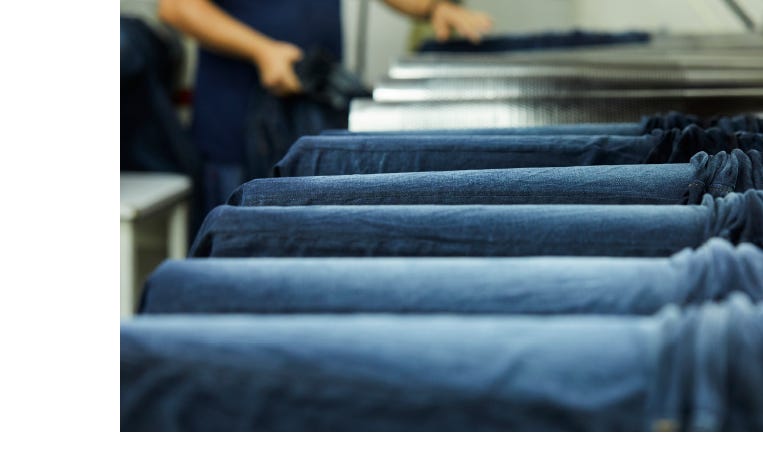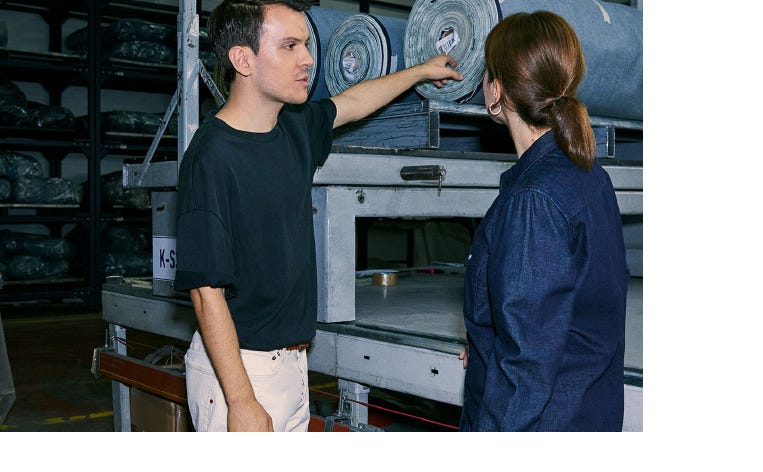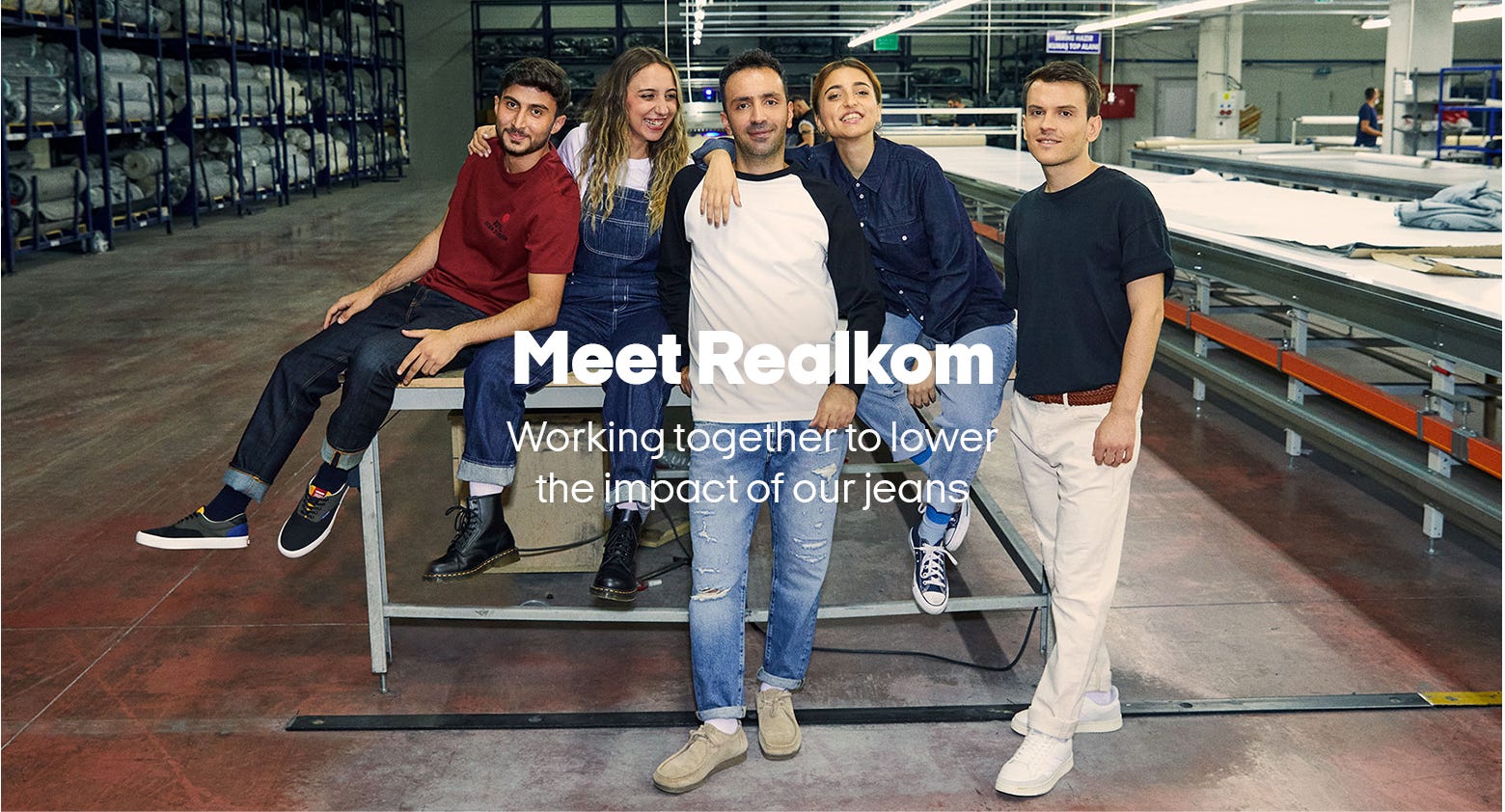
Based in Turkey, REALKOM helps us make our trusty denim styles. We have been working together since 2004, and the team there has been a big part of our Low Impact Denim journey since we started it over 10 years ago. We caught up with Sales and Marketing Director Bora Akris for a behind-the-scenes look at how REALKOM makes great jeans that do good too.
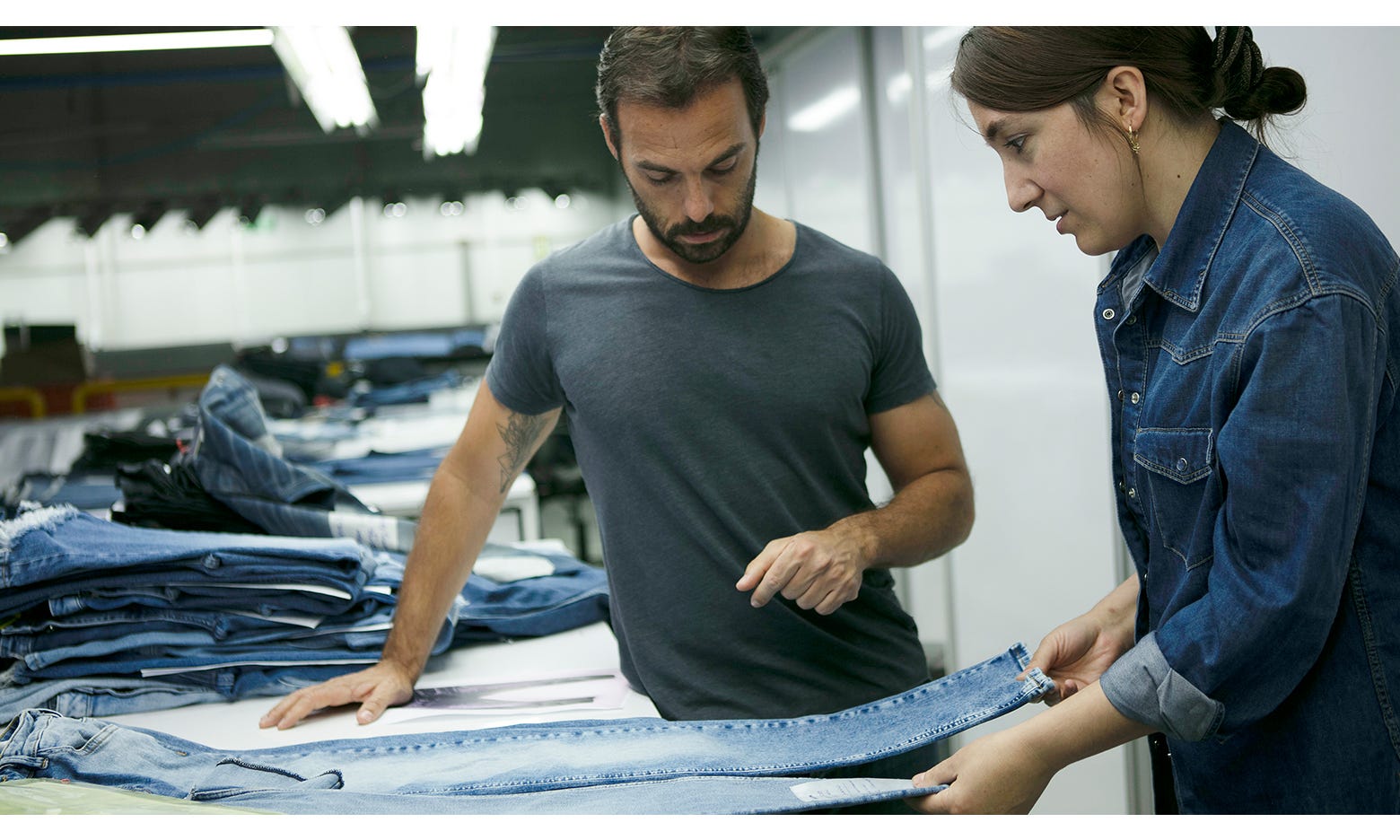
JJ: What are your day-to-day tasks at REALKOM?
Bora: I am the link between the design, production, sales and communications sides of REALKOM. I get stuck into every aspect of the company to try and improve it, making sure everything we produce is high quality and delivered on time. I have been working at REALKOM for 17 years, and I actually started around the same time JACK & JONES came on board. Talk about a good way to kickstart my time here!
JJ: What does social responsibility mean to you, and how do you bring this into your work?
Bora: On a personal level, social responsibility means that the decisions I make and actions I take should not have a negative impact on anyone else. At work, this means making sure we are not causing any harm to nature or to the people we are working with but helping them to thrive instead. One important part of our social responsibility work is offering training programs to our staff to help them grow and upskill. Happy people, happy nature – that is what we are aiming for.
JJ: When sourcing the cotton that goes into JACK & JONES jeans, what practices do you have in place to make sure you are doing it responsibly?
Bora: Team JACK & JONES is pushing us to source as much organic and recycled cotton as possible, and it has been a great challenge to take on together. The aim is for these fibers to make up more than half of the cotton used in our collections. We have both the Organic Content Standard (OCS) and the Recycled Claim Standard (RCS) certifications. One thing that is particularly cool is that the textile mills we work with are using post-consumer recycled cotton in their fabrics, collecting denim jeans from all over the world and recovering the cotton so they can use that yarn again in their new fabrics.


JJ: How are you cutting down on the carbon emissions that are generated by making our jeans?
Bora: We have invested in different systems to reduce the carbon emissions we generate in our facilities over the years. In 2012, we installed a cogeneration plant. This captures the excess heat from making electricity and uses it to heat the factory instead of putting it to waste, lowering the energy we need overall. We also changed our laundry setup to a more efficient machinery line from Smartex that saves us 35 to 40% on energy and 70% on water. The next step is to put a solar panel system on the roof of our factories in 2022. JJ: Let’s talk more about water. How are you working to reduce your overall usage?
Bora: In our industry, the highest water consumption comes from growing cotton. So, by using recycled and organic fibers and pushing the fabric mills we work with to do the same, we start saving water from the outset. We have also invested in ozone, e-Flow and laser technologies, which reduce our water usage during the washing phase by up to 90%. We currently purify our water and use 25% of it for general use in the factory, but for 2022 we are investing in a new water recycling plant which will enable us to recycle 90% of our water for reuse in the production processes.
JJ: How do you regulate the chemicals you use? Are you working with any cleaner alternatives in this area?
Bora: At the beginning of 2020, we invested in our own chemical production unit and in our factory in Düzce, we are working closely with Düzce University to produce 90% of the chemicals we use. They are all fully organic, and we have Material Safety Data Sheets (MSDS) and Global Organic Textile Standard (GOTS) certification for them all. I think we are the only denim manufacturer who produces its own organic chemicals, and if you had asked me two years ago, I would not have dreamed it was possible.
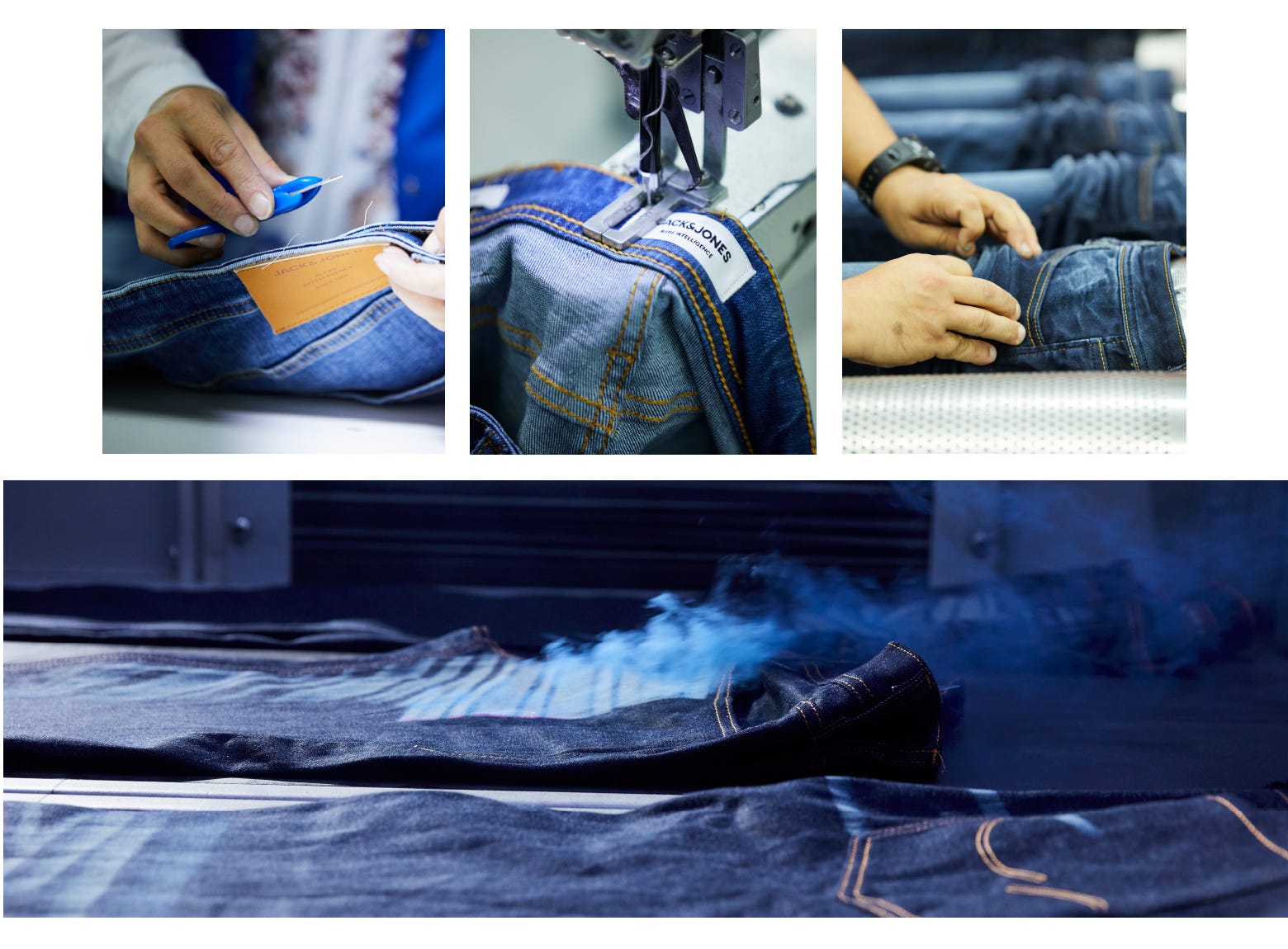
JJ: REALKOM and JACK & JONES have been working together on our Low Impact Denim since the initiative started 10 years ago. What have you learned from the journey?
Bora: It has always been important to JACK & JONES that lowering the impact of a pair of jeans does not compromise its quality or style. So together, we learned how to achieve the same design effects and stay on trend while making our manufacturing processes more efficient. The project has been a real team effort because JACK & JONES pushed everyone involved in making their jeans to improve – not only us, but those on the fabric side, the accessory side and the machinery tech side.
JJ: What is your message to the global JACK & JONES brotherhood, who wear the clothes you make all around the world?
Bora: It has got to be about sustainability. We need our JACK & JONES brotherhood to evolve their shopping habits to more innovative and lower impact products. I would like to see them push for the most sustainable clothes they can buy, because this will really encourage both brands and their manufacturers, like us, to evolve our practices. I want the end consumers to chase for it too.
